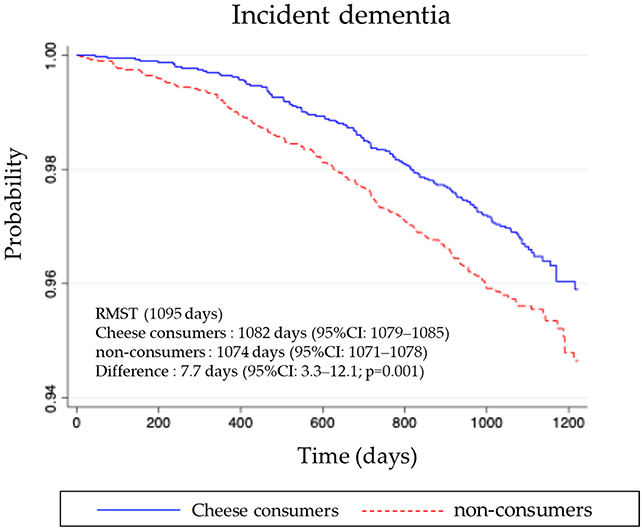We don't yet have a cure for dementia, but we do have a growing list of factors that may influence risk – including exercise, diet, drinking, social circles, and even how you listen to music – and we can now add eating cheese.
In a study commissioned by Japanese food company Meiji Co., researchers in Japan crunched the numbers on 7,914 people aged 65 or over. Half reported eating cheese at least once a week, while half said they didn't eat it at all.
The health of these participants was tracked for three years. Of the cheese-eating group, 134 people developed dementia (3.4 percent); among cheese abstainers, 176 developed dementia (4.5 percent). That's a difference of around 10 or 11 extra cases in every 1,000 people.
Related: 117-Year-Old Woman's Diet Could Help Us All Live Longer
While that's not a huge variation, and shows an association rather than cause and effect, it adds to what we already know about diet and dementia – and how eating habits relate to physical and mental health in general.
"These findings are consistent with prior observational evidence linking dairy intake to cognitive health," Seungwon Jeong, a geriatrics researcher at Niimi University in Japan, and colleagues write in their published paper.
"Although the effect for each person is modest, at a population scale, especially in countries [like Japan] with low cheese intake, such differences could contribute meaningfully to dementia prevention strategies."

The researchers accounted for several factors that can influence dementia risk, including age, sex, education level, and income.
In a secondary analysis, they also controlled for healthy eating: Cheese abstainers tended to have less healthy diets, which might contribute to the link. The association was less strong in this analysis, but was still significant.
In other words, there seems to be something about cheese in particular that can prevent dementia from developing, aside from the beneficial effects we know that a nutritious diet can have. This isn't something the researchers looked at specifically, but past studies offer some clues as to what might be going on here.
Cheese contains nutrients known to help brain health, for example, including vitamin K. It's also rich in beneficial bacteria for the gut, and plenty of earlier research has found a connection between gut health and dementia.
There's also strong evidence that fermented dairy foods like cheese are good for the heart, and heart health is something that has long been thought to be important in dementia risk. As usual with dementia, there are likely many different contributors acting together.
"Although the present study did not include biomarker or mechanistic assessments, several nutritional characteristics of cheese may provide a plausible explanation for the observed association," write the researchers.
Dementia has been declared a key public health priority by the United Nations, and it's thought that at least 50 million people are currently living with the condition worldwide. That's likely to increase as the population ages, which is a particular concern in Japan, where the research was carried out.
Related: Strange Rocks Clinging to Mummies Could Be World's Oldest Cheese
The statistics certainly aren't strong enough to suggest a regular cheesy snack is guaranteed to ward off dementia, but the indications are that it could help. The researchers are keen to expand their work to learn more.
"Further research is warranted to clarify dose-response relationships, cheese subtypes, and underlying mechanisms," write the researchers.
The research has been published in Nutrients.

